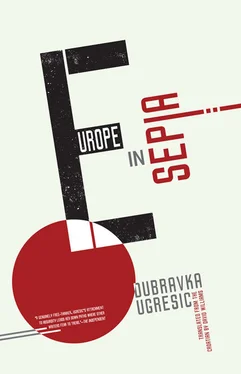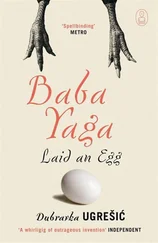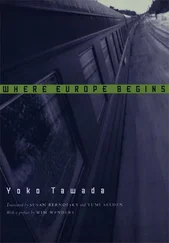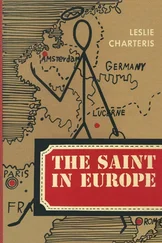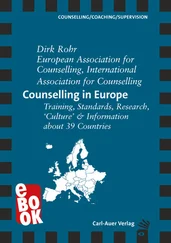Some species propagate so quickly that they’ve changed the face of the Irish landscape. A worried taxi driver treated me to a passionate tirade against floral immigrants, singling out the cordyline palm, which in New Zealand goes by the rather unromantic name of cabbage tree. “Ireland never looked like this!” he moaned. “It’s all because of those damn palms!” And, it’s true, some parts of Ireland, particularly at dusk, look like suburbs of Los Angeles.
Quite parenthetically, in Dublin I was a guest at a literary festival, which had nothing to do with my native soil, with the former Yugoslavia, present-day Croatia, or the Balkans. The moderator at my event, an affable fellow, confessed to me that he had no connection with what I was to talk about either, but that the organizers had asked him to be involved when they found out his long-deceased mother was a product of Croatian terroir . Who knows, perhaps the organizers had visited Croatia at some point and it’d seemed to them that Croats could only manage alongside other Croats, and perhaps they’d simply thought I’d feel more at ease with an Irishman whose mother was a Croat than an Irishman whose mother was an Irishwoman or who-knows-what. I felt a bit like a cabbage they’d intercepted at the border without a botanical visa, but I certainly didn’t hold it against the fine people of Dublin. Dublin — a city that has named its two imposing bridges after writers, one after Beckett, the other after Joyce — won my heart forever. The Croatian mother thing could’ve happened anywhere, because as far as that thing is concerned, it’s just how most Europeans are. Yes, Europe is organized like the National Botanic Gardens in Dublin; everyone wears a plaque bearing his details around his neck — point of origin, level of invasiveness, and threat posed to native specimens all clearly documented.
But what has all this got to do with Wittgenstein? The National Botanic Gardens are also home to a glasshouse full of tropical plants, which you enter down three steps. Ludwig Wittgenstein spent the winter months of 1948–49 in Dublin. A bronze plaque mounted on one of the steps claims that Wittgenstein liked to sit on the steps and write. I sat down and let my mind wander. What did I think about? Nothing very scientific. About how Europe in its entirety is irreparably tribal, how practiced it is in the art of world wars, and how this makes a new one a constant possibility. This time because of a “Pole”; because of that Latvian on Inisheer; because of a Serb or a Croat, both practiced in desecrating each other’s headstones; because of that Slovak who steals teeth from skeletons; or for some other reason — for the usual reason, money. Then the thought occurred to me that Wittgenstein might well have been sitting on these steps at the very moment my mother gave birth to me. And then, having severed the umbilical cord, I asked myself what in my life — a chaotic hold in which a socialist childhood, the disintegration of Yugoslavia, civil war, new passports and fractured identities, betrayals, exile, and a new life in a West European country all mix and mingle — what in my lifetime had actually been realized of all the things promised to us by communist ideologues, Hollywood films, the dapper ideologues of consumerism, the homespun ideologues of nationalism, the ideologues of European unification, by gurus of every stripe and shade?
The question bore into me like a poisonous thorn, my heart began to pound and I was overcome with fear, a sudden fear of the empty screen, of the absence of future projections. . So what, said a consoling internal voice, why do we need future projections — in the near future we’re to live much longer, at least on average (who still wants to live longer in a world like ours?!); and we’re sure to live better (no one’s promising that anymore!); and even if we don’t live better, we’re definitely going to live in greater freedom (yeah right!), in a world without borders (pull the other one!); in a world of solidarity and justice (enough already!); in a world of solidarity and justice we’re going to live like slaves: like s-l-a-v-e-s (hey now, hey now!); don’t get hung up on the details, but always take flight to where there is a free view over the whole single great problem, even if this view is still not a clear one . Wittgenstein, old boy, you’re bleating, it’s the only thing you know how to do. I’m not bleating, I just know that a man will be imprisoned in a room with a door that’s unlocked and opens inwards, as long as it does not occur to him to pull rather than push. .
And amazingly, following Wittgenstein’s instructions, my terrified thoughts pried opened the door, fluttered their way outside and raced off toward the Asiatic steppes; my thoughts deftly leapt the frothy crests of waves on the Indian Ocean, soaring above the snowy Nepalese peaks: My thoughts skated the slipstream down onto the plains, slinking through the grass like tigers; God, there was almost nothing my hyper-mobile thoughts, my sensuous thoughts, my thoughts, seductive like a National Geographic clip, couldn’t manage. There, on Wittgenstein’s steps, I calmed my racing pulse, ssshhh , and renounced the prognosis I’d just offered: Bury those fears, forget that nonsense, it’s just these damn gardens. I’d completely forgotten. I was in the stifling heat of the tropics.
YES, INDEED, TIMEand space, the ends of the earth, and all manner of things besides, can in a given moment become muddled, inducing a jagged sense of internal terror. For months we’re oblivious and inured, then our fingernail catches a chance thread, and pulling on it, reality, like a woolen jumper, unravels before our eyes. Sometimes it’s a noise that gets to us; the disarming crash of a dropped glass, the shattering of a porcelain cup ringing out like a child’s scream, the creaking of wormholes in the night, the barely audible patter of mouse paws. Sometimes it’s the routine but unforeseeable situation that unsettles us; a delayed flight, a tedious hold-up in traffic, a gaze caught unaware. .
Who knows what pulled the thread this time? Was it the half-opened door leading from the reception of the Hotel Flanders into an adjoining room, where the melancholic face of Romy Schneider gazed out from a poster for an October 2012 film retrospective, or was it the two receptionists, little goggle-eyed gray mice, Romy’s triste counterpoints?
In late November 2012, I stood at the entrance to the Hotel Flanders in Ghent, waiting for the taxi the youthful receptionist had called for me. It was morning, the city blanketed in a fog that looked like it had every intention of hanging around until spring. Shaded by a low and murky sky, the façades of nearby buildings appeared in worse repair than they actually were. Somewhere on my left I sensed a tram I glimpsed yesterday slip by, swiftly as a blind woman, the name of its terminal station — MOSCOU — on the front. It’s entirely possible that this Moscow (yes, tram number four!), hurtling through the fog, was but a morning apparition. Yet the vertical letters to my left — SAIGON — they were no apparition; at any moment it seemed they might slide from the building’s façade and crash down onto the footpath below. Was it this moment of hostage in the fog between “Moscow” and “Saigon” that tripped the switch of my internal anxiety? Or was it yesterday’s failed attempt to pry a Ghent — Amsterdam train schedule out of the two receptionists, the pair of goggle-eyed gray mice? Online train timetables were apparently a new thing for them, and even when in a moment of final desperation I asked them to try the Deutsche Bahn site, they managed to google Deutsche Bank. Piped jazz screeched in from somewhere, and behind their mousey faces flickered the melancholic and all-empathetic smile of Romy Schneider.
Читать дальше
